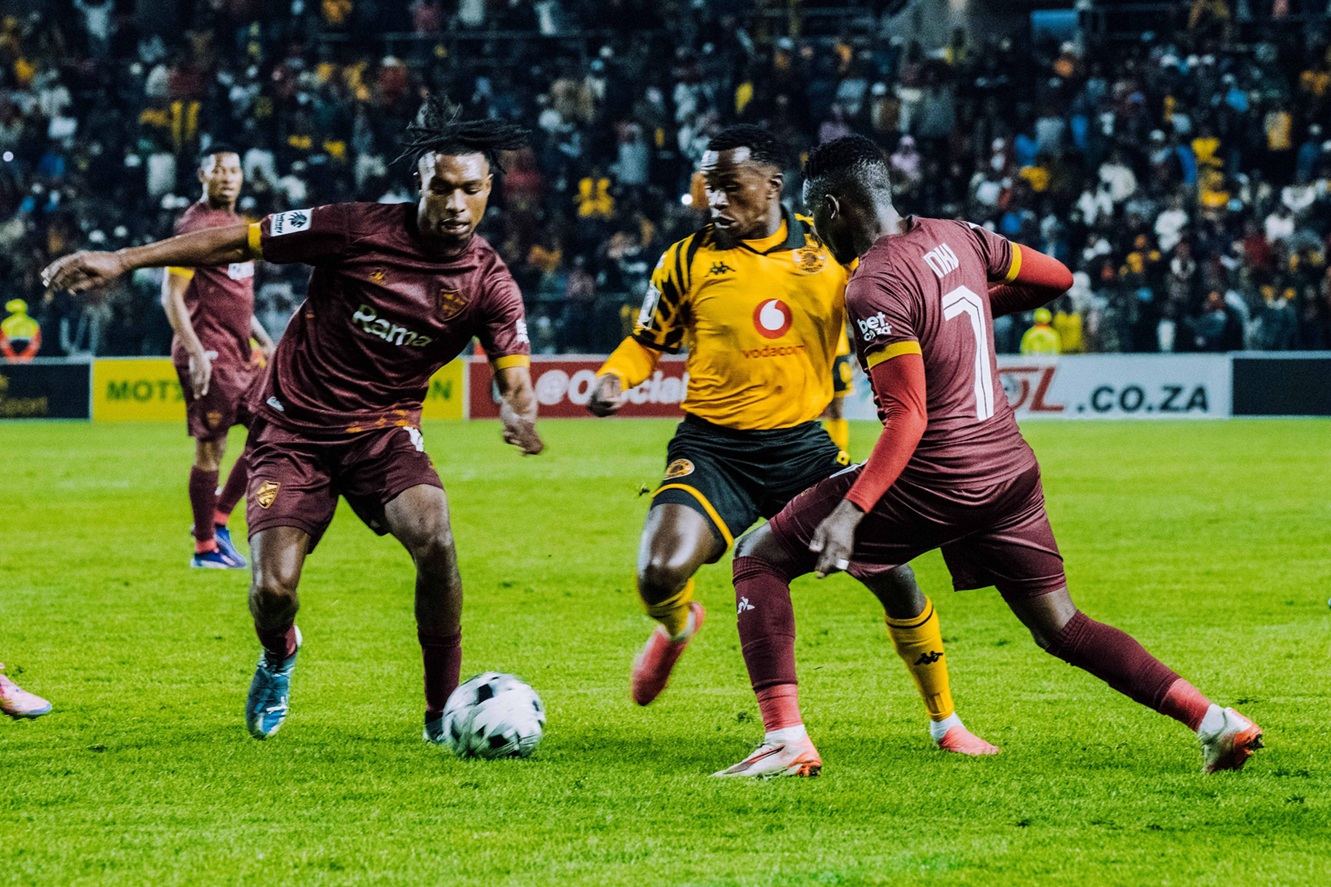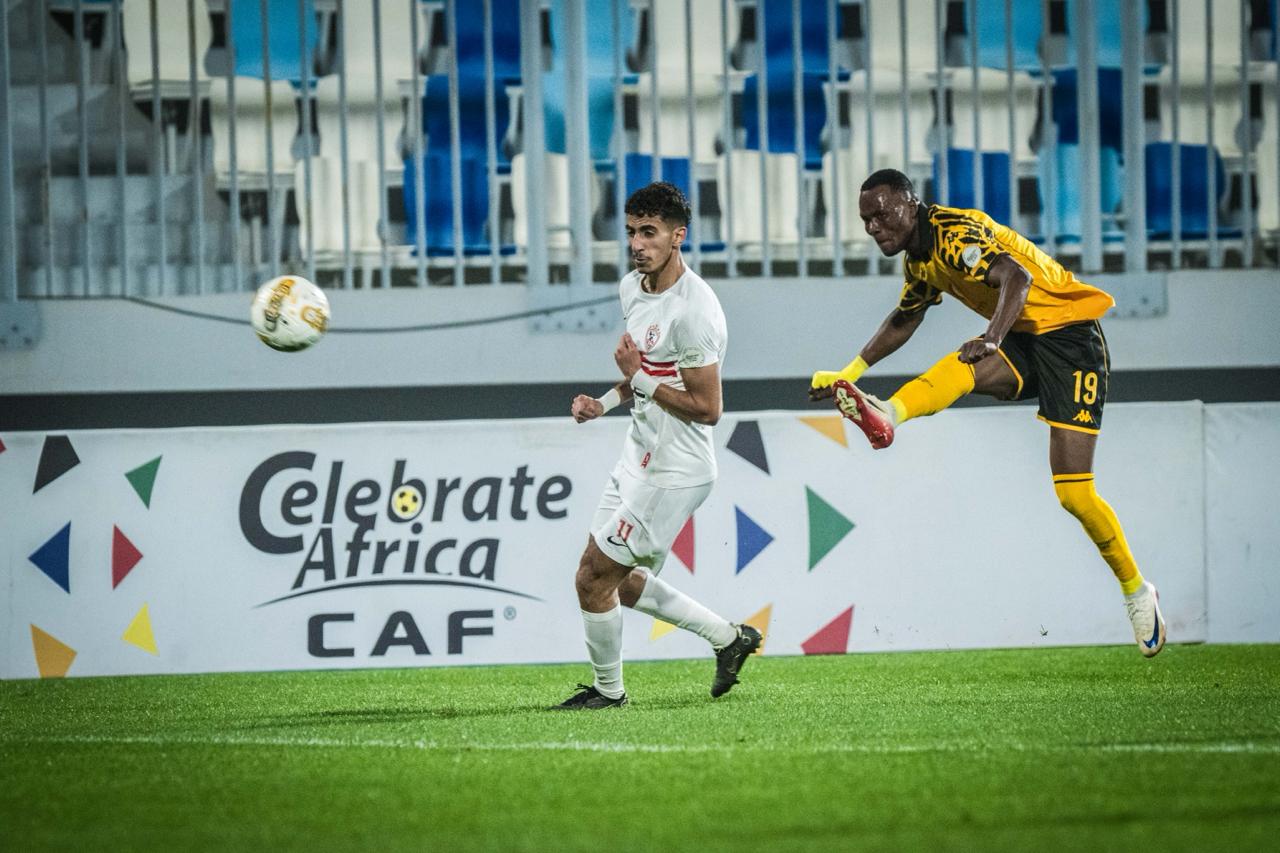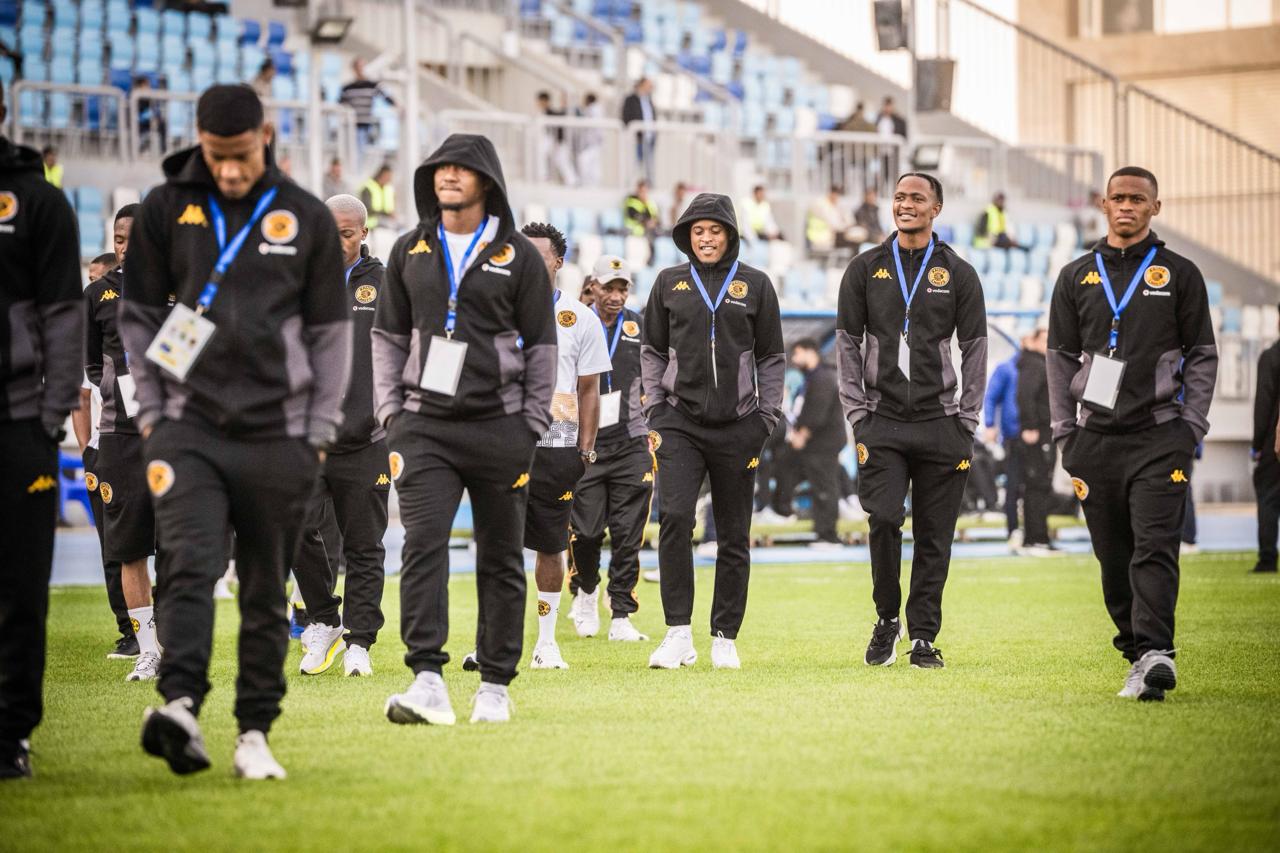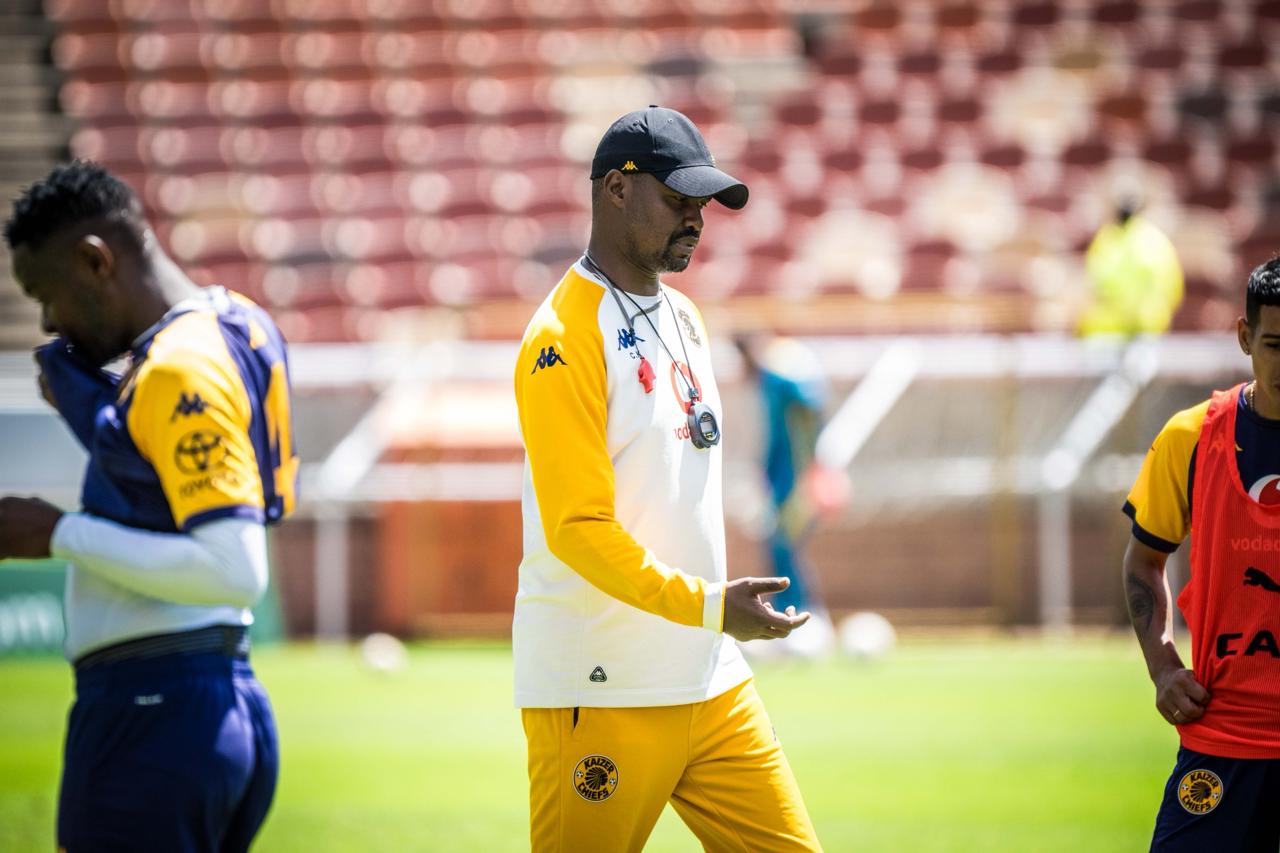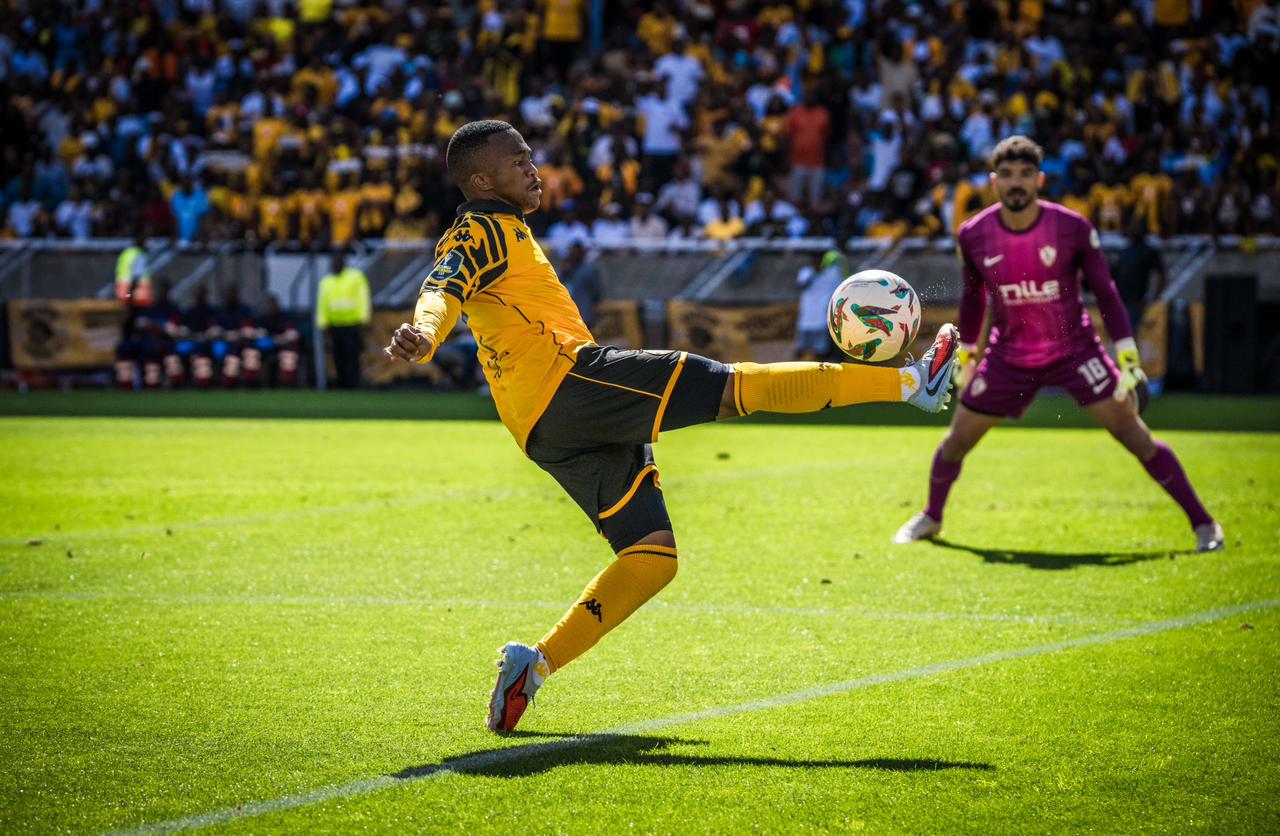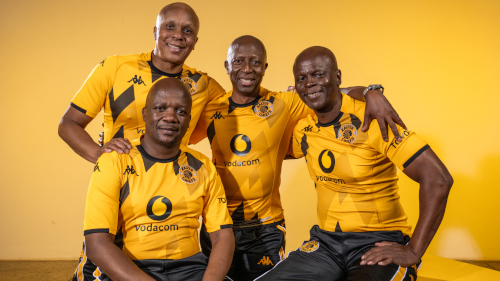Posted in Features, News on Jan 03, 2021.

The spirit and memory of Johannes ‘Ryder’ Mofokeng will live on in the hearts of the Kaizer Chiefs football family forever.
Amakhosi’s longest-serving captain - and one of its most inspirational players - passed away on 2 January 2021 at the age of 68.
Mofokeng joined Kaizer Chiefs in February 1970, from amateur club White City Lucky Brothers.
He was scouted by Kaizer Chiefs Chairman Kaizer Motaung’s brother, Buti, while featuring in an amateur game in White City, Soweto, in early 1970.
He was part of the Chiefs reserve team from 1970 to 1973, before making his official debut for Chiefs’ first team in a league game against Kimberley Dalton Brothers on 5 August 1973, when he was 21.
Mofokeng was made captain of the Kaizer Chiefs first team by coach Eddie Lewis in 1975, a position he diligently held for a decade until 1985.
During his time with Chiefs, Mofokeng won 25 official honours with the club – 21 as club captain.
He was part of the Chiefs squad that won the club’s first league title in 1974, a season which saw Chiefs score 106 goals and concede just 27 in the league, as the team lost just three times in their 30 games that season.
He won five league titles with Chiefs in 1974, 1977, 1979, 1981 and 1984 and was captain for four of those seasons in 1977, 1979, 1981 and 1984. No player in the history of the club has captained the team to more titles than him.
He was captain of Chiefs’ quadruple-winning team of 1984, under the guise of the recently passed Joe Frickleton, as they won the League Title, Mainstay Cup, JPS Knockout and the Sales House of Champions Cup.
Mofokeng featured in over 300 official games for Chiefs, but managed only one goal in a 1979 Cup game against Blackpool in Kwa-Mashu.
His contribution to the history of the club is immense and at the time of his passing he worked as a senior and revered member of the club’s development structures.
“Ryder’s loss is unbelievable. Words cannot describe how I feel at this moment. Ryder was one of us and served the club with distinction as a player and staff member. I wish to thank the Lord for having afforded us the opportunity to share in the life and times of this legend. His is the name engraved and cast in stone in the history books of Kaizer Chiefs. He achieved it all as a football legend. He won and lifted many trophies for us. I wish at this stage to express my deepest, heartfelt condolences to his family,” said a shocked Kaizer Chiefs Chairman, Kaizer Motaung, on hearing of Mofokeng’s passing.
Mofokeng, a right back who wore the “number 2” jersey for the club, captained the team to some of its most significant and special victories.
The win he was most proud of occurred at the Rand Stadium on 12 April 1975 when Kaizer Chiefs became the first ‘black’ team to beat a ‘white’ team, when they defeated Hellenic in the Chevrolet Champions of Champions in the early, tempestuous days of multi-racial football in South Africa.
Hellenic had won the first leg 4-0 at Cape Town’s Hartleyvale Stadium and their then coach Frickleton once boasted that a black team would never be as good as a white one.
“I will walk naked in Johannesburg’s Eloff Street if a black team beats a white team,” Frickleton once famously said.
Kaizer Chiefs, however, proved the Scotsman wrong when they beat his ‘white’ side Hellenic 2-1 in the second leg.
Frickleton never fulfilled his promise, but speaking during the club’s 50th anniversary celebrations last year, Mofokeng still teared up when he described the emotion of that day.
“It was very emotional,” he reflected. “Those were still the darkest days of the apartheid regime, where blacks were told they were inferior to whites. Then, we, as a black team, beat Hellenic, which was a white side. I will never forget it – it’s one of the most memorable moments of my life. Out of all our victories in the seventies, this was Kaizer Chiefs’ greatest win,” said Mofokeng.
‘Ryder’ also led the Amakhosi to their first multiracial league title in 1979, one year after the formation of the National Professional Soccer League (NPSL), ensuring they were the undisputed best team in the country, while South Africa was still in the grip of apartheid segregation.
The significance of that league title win was not lost on Mofokeng.
“When we played against white teams like Lusitano, Highlands Park or Wits University,” he remembered, “it was a real war on the pitch. Even though we by then also had some white players in our squad, the notion that they could lose against a mostly black side really angered those teams.
He did enjoy, though, playing against Arcadia Shepherds, “who were real sportsmen.”
For the Amakhosi, Mofokeng was one of the club’s biggest sportsmen, unifiers and ambassadors.
When Lucky Stylianou became the first ‘white’ player to become a regular at Kaizer Chiefs in the late 1970’s, he made particular mention of the huge role Mofokeng played in welcoming him.
When Stylianou arrived at the training ground for the first time, the first person to greet him was Mofokeng, who held his hand while introducing him to every player.
“The captain, Ryder Mofokeng, took me by the hand in the traditional African way and introduced me to the players. No amount of money can ever buy the kind of love I received as a member of Amakhosi,” Stylianou said in paying tribute to Ryder’s tremendous show of leadership and warmth.
While he captained Amakhosi star players like Nelson ‘Teenage’ Dladla and Pule ‘Ace’ Ntsoelengoe, he was always assured of their utmost respect for his leadership.
In recent years, Mofokeng was absolutely devoted to the development of bringing through the next generation of Amakhosi players.
He was also passionate about South Africa’s youth as a whole.
After an incident of gun violence at the Jabulani Technical School, Mofokeng was moved to pen the following words.
“School violence represents unacceptable and unethical behaviour in the educational sector. This type of violence poses serious psychological consequences for pupils, families and most important, teachers. Many teachers are leaving the profession because of endemic violence. Now is the time for state intervention,” said Mofokeng, in yet another example of his strong sense of leadership, empathy and duty.
Amakhosi rarely lost a cup final with Mofokeng at the helm in the 1980s, which he attributed to the club’s huge sense of unity.
“We had one spirit and one voice. When we took to the field, we were always together,” said Mofokeng.
Motaung says Mofokeng’s huge contribution to the Amakhosi had “left us with so many fond memories to soothe us and give us strength” and that messages of sympathy and condolences have filtered through from far and wide, from the club’s legends, former and current players and supporters.
“Captain my Captain, as Ryder was affectionately known, robala ka kgotso Phoka. Legends don’t die, they replicate. God be with the family and give them strength as they go through this valley of darkness. We are guided by Psalm 23:4, reading from the Good Book: Even though I walk through the darkest valley, I will fear no evil, for you are with me; your rod and your staff, they comfort me,” Motaung added.
As our ‘Captain’ leaves the pitch for a higher calling, we will always remember him and hold him up high as one of the most beloved members - and leaders - of the Amakhosi family.
RYDER MOFOKENG’S HISTORY AT KAIZER CHIEFS
February 1970: Joins Chiefs from White City Lucky Brothers joining the clubs reserve ranks.
Kaizer Chiefs Reserves: 1970 - 1973
Kaizer Chiefs: 1973 - 1985
Chiefs first team Debut: 3-0 away league win 5th August 1973 against Kimberley Dalton Brothers.
Honours with Kaizer Chiefs (25)
League Titles (5): 1974, 1977, 1979, 1981, 1984
National Cup Competition (Nedbank Cup) (6): 1976, 1977, 1979, 1981, 1982, 1984,
League Cup (Formerly Telkom Knockout Cup) (2): 1983, 1984
Top8 (MTN8) (6): 1973, 1974, 1976, 1981, 1982, 1985,
Sales House of Champions (6): 1974, 1976, 1980, 1981, 1982, 1984

